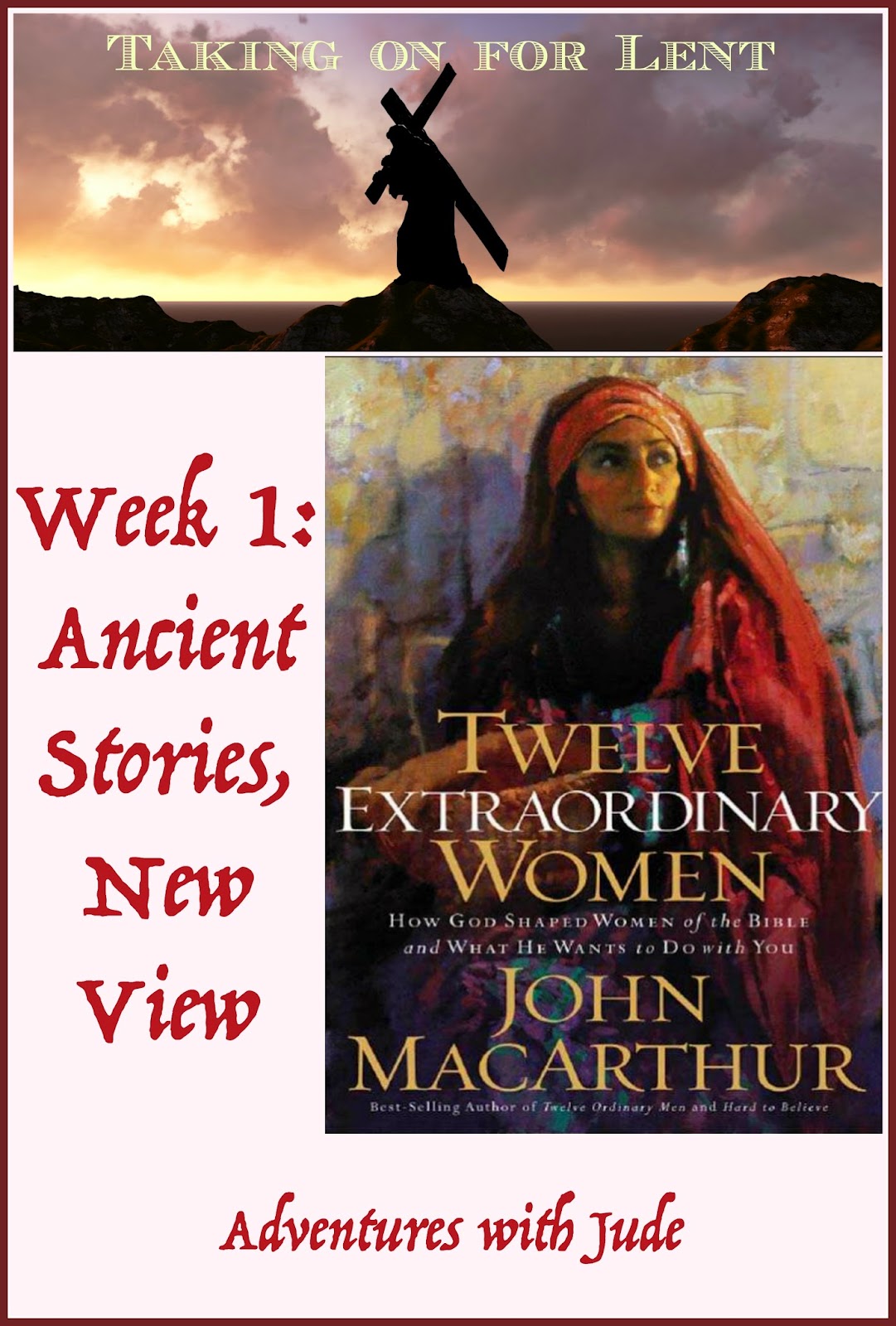"Be good."
"Behave."
How many times to do we say something along those lines to our kids? Sometimes, they purposely misbehave -- they want to see what happens. Sometimes, they try but just fall short. The same could be said even of grownups.
"Thou shalt not covet your neighbor's goods," is what is taught, but you really wish you had their car. Or house. Or lifestyle.
"Thou shalt not kill." I haven't taken a baseball bat to anybody's head! I'm doing OK, right? Well, there was the time I might have been a little harsh on a kid and left him in tears thinking maybe I wished he really did run away.
Maybe I'm not so good at being good, either.
I really was intrigued by the book Bad Girls of the Bible: And What We Can Learn From Them by Liz Curtis Higgs. The "good girls" get lots of press - Martha and Mary, for example, but it's the "Bad Girls" that Jesus hung out with -- Mary Magdalene, the Woman at the well, the adulteress he saved from a stoning. Sure, we all want to be the good girls, but like the bad ones, we fall short. Lent is a time where we should be examining our consciences to see where we've fallen short and how we can change. Who else to learn from but those who have made the same mistakes we have?
I loved the fictional stories at the start of each chapter. No, a Rhett-and-Scarlet moment isn't how Genesis really begins, but it sure seems more relatable to have a debutante disinherited for not obeying her father's wishes. I also found discussions understandable: there's no apple tree that we shouldn't eat from now, but there are plenty of Cinnabons at the mall. Ever smelled one and just couldn't resist...and two bites in, you're thinking "Why am I eating this?" Of course that cinnamon bun (or chocolate or whatever food you can't seem to pass up) isn't inherently evil, but it's something we know isn't very good for us. Often, we even feel badly about it after. Are we about to be tossed out of heaven for eating a pastry? Not necessarily, but if we knowingly are doing something that's going to harm ourselves, then maybe it's something we should reconsider -- maybe a little more focus on "in moderation" and not so much emphasis on "all things."
Oh...Lot's wife. Looking back isn't a good idea. I can't count how many newly (and not-so-newlywed) arguments revolved around our housing situation. When Neal and I married, we had a lovely home. No complaints about the house or the furnishings. Not even the neighbors were an issue -- I had more in-laws in less than half a square mile than I ever could imagine! However, like all real estate though, none of that matters if the location is lousy, and I was definitely feeling more Mrs. Lot than whither-thou-goest Ruth. 18 years later, I don't look back and wish I lived in the city (though I still say one of the most thoughtful gifts Neal ever gave me was to plan a weekend in New York City where I could suck up all the city energy), but I still grumble how far we are from things (when you grow up three blocks from the grocery store, thirty minutes seems an eternity). Note to self -- don't look back and grumble wish you were that close to the grocery store. (Especially since they waft in that Cinnabon-y air.) Be content with your...lot?...in life and look forward to being with him and not left behind and alone.
The other ladies of the book were interesting, on an intellectual level, but it was the final woman - "The Sinful Woman" who anointed Jesus' feet with perfume and tears - who left an impression. On the surface, it seems pretty obvious - the host of the dinner party didn't bother with the expected niceties, but she did and actually went over the top. At the end of the chapter, there's a point made: people will talk, no matter what we do. So many times I've wanted to say something but kept my mouth shut (hard to believe if you know me) because it was easier. Either it was too much effort, or I was afraid of upsetting someone who had a different opinion. My takeaway from here is that while tact and politeness are preferred, sometimes, some things just need doing or saying. For all that people took issue with her sins, she was pretty courageous Instead of taking the easy road, if people are going to talk anyway, I might as well let them - after I've spoken my conscience.
Am I suddenly going to turn around become the next angel? Probably not. However, we have choices --to let our mistakes be the sum of who we are, like Jezebel, to learn from others' mistakes (like the one Lot's wife made), or to just bite the bullet and do the right thing even when it won't make us the most popular person in the room. Each day, I tell my kids that it's a new day, and a fresh start. Thankfully, God has given me, His child, yet another chance to try again.

©2012- 2015 Adventures with Jude. All rights reserved. All text, photographs, artwork, and other content may not be reproduced or transmitted in any form without the written consent of the author. http://adventureswithjude.com



